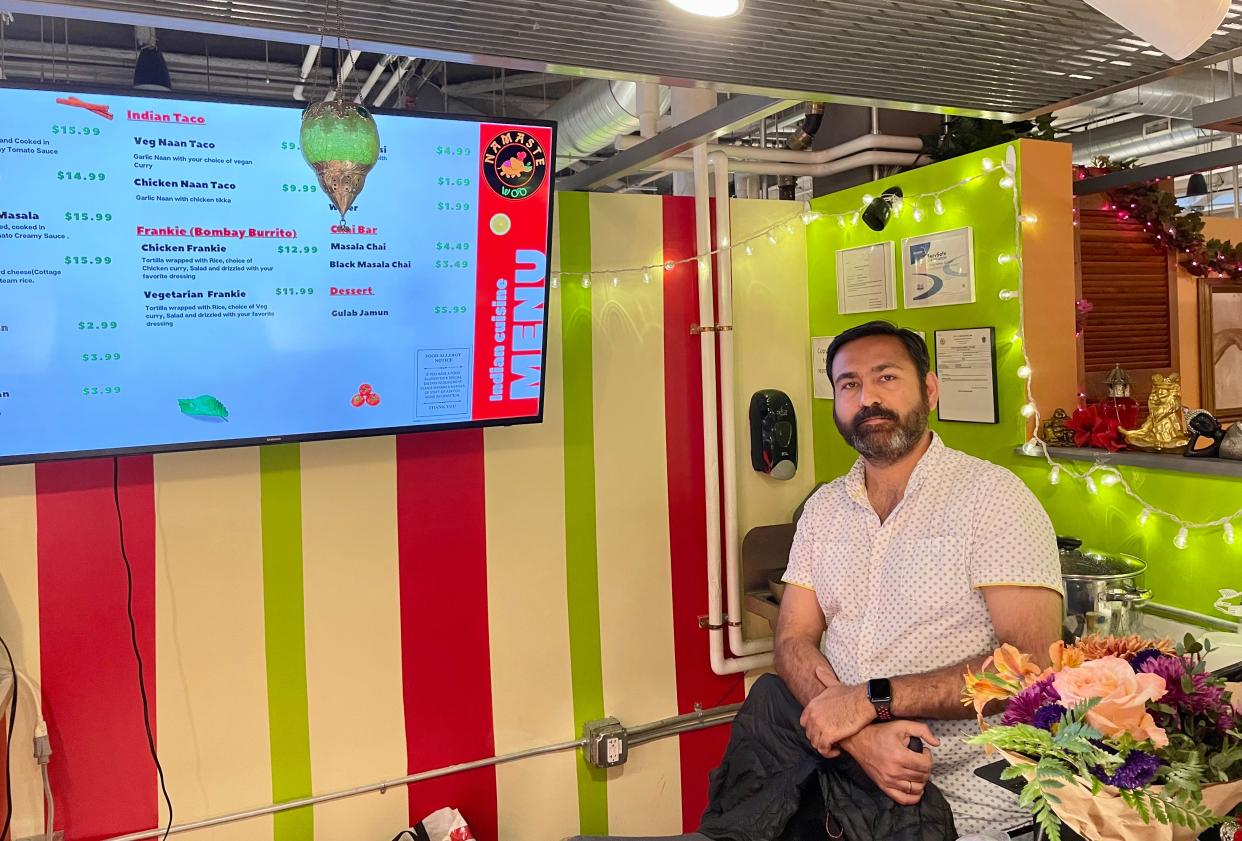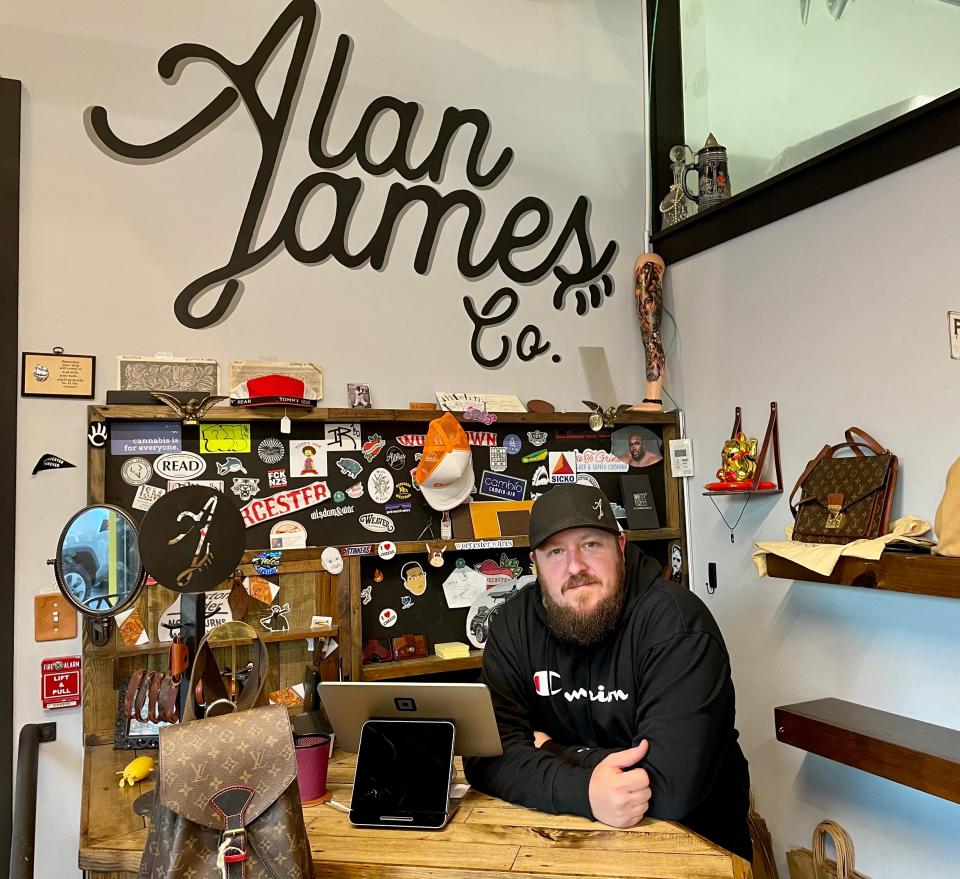Inflation hits home for vendors at Worcester Public Market

WORCESTER — Immediately after the pandemic, small businesses in Worcester and across the country were faced with a shortage of basic goods, from bottles to plastic forks.
Even as the world opened up again, global supply chains, which had ground to a halt, were slower to catch up, leaving businesses – especially those in the food and dining sectors – scrambling during an awkward transition period.
Vishal Suchdi, whose wife, Pooja, owns Namaste Woo at the Worcester Public Market, thought the days of hunting down deli containers and napkins were behind them, but soon learned that while the availability of supplies may have risen, so has the price tag.
“There have definitely been changes,” said Suchdi. “Cost of goods have significantly increased in the last six months.”
He estimated an increase of about 15% to 20% in the cost of ingredients and raw materials from inflation.
“Even the cost of chicken has gone up,” he said.
Staffing costs are not exempt.
“Hiring help has been harder,” Suchdi said. “People are not available and whoever is will be pretty expensive.”
Rising costs from inflation are in turn passed on to customers. Suchdi said the business had to mark up prices at least twice in the last several months.
Canal District Wines is dealing with similar issues, said Brittany Kurowski, who is in charge of ordering stock. Canal only works with small, local farms, so as production costs rise, so do retail prices.
These farms are also taking steps to control costs on such things as corks and barrels. Instead of corks, winemakers are switching to beer cap or crown closures and reusing barrels rather than purchasing new oak.
Despite these measures, price increases are still being passed on to distributors and customers.
“You might see a $10 wine go up to $15,” Kurowski said, adding that supporting independent, sustainable producers is worth it – and after tasting the wine, she said, customers think so too.
Canal holds frequent wine tastings and, “once people taste the difference they’re more willing and actually happy to support these small farmers than the bigger conglomerates,” she said.
Even if other businesses can avoid raising prices, in the last several months they have seen more indirect effects from inflation.
“Even though the business hasn’t been affected too much, people are a lot more stingy to buy stuff with inflation,” said Amaris, an employee at K-Sense, another Worcester Public Market business, who declined to give her last name, “because they can’t really afford to spend money on things other than necessities.”
K-Sense Co. specializes in all-natural soy candles, and with much of its stock being made from reusable materials, it has neatly sidestepped traditional manufacturing costs.
Amaris has necessities very much on her mind.
“Groceries are super expensive,” she said, having first noticed the rising prices at the grocery store over the summer. As a direct result, she has had to pick up additional hours, working every day except Monday, “and it still doesn’t really even out,” she said.

Bill Laudon, owner of Alan James Co., crafts custom leather goods. said he's proud of his work but holds no illusions of where his products stand regarding wants versus needs.
“What I do here is not a necessity at all,” he said, “I make wallets, bags and belts.”
Laudon said that so far he has not been particularly affected by inflation in the cost of materials, as he buys the hides of leather he needs in small quantities, usually as required for individual projects.
However, as potential customers become increasingly selective with their disposable income, Laudon has found himself having to market his work more aggressively than ever.
“I’m battling against people’s (other) investments,” he said.
If someone is in the market for a handmade leather bag, Loudon has to ensure that he is on their radar, “so when they’re thinking of treating themselves, they see me as an option.
“Nobody’s coming in here regularly to spend $100 to $200 on a belt and wallet,'' said Laudon. “Affordability really is not there across the board.”
This article originally appeared on Telegram & Gazette: Inflation hits home for vendors at Worcester Public Market

